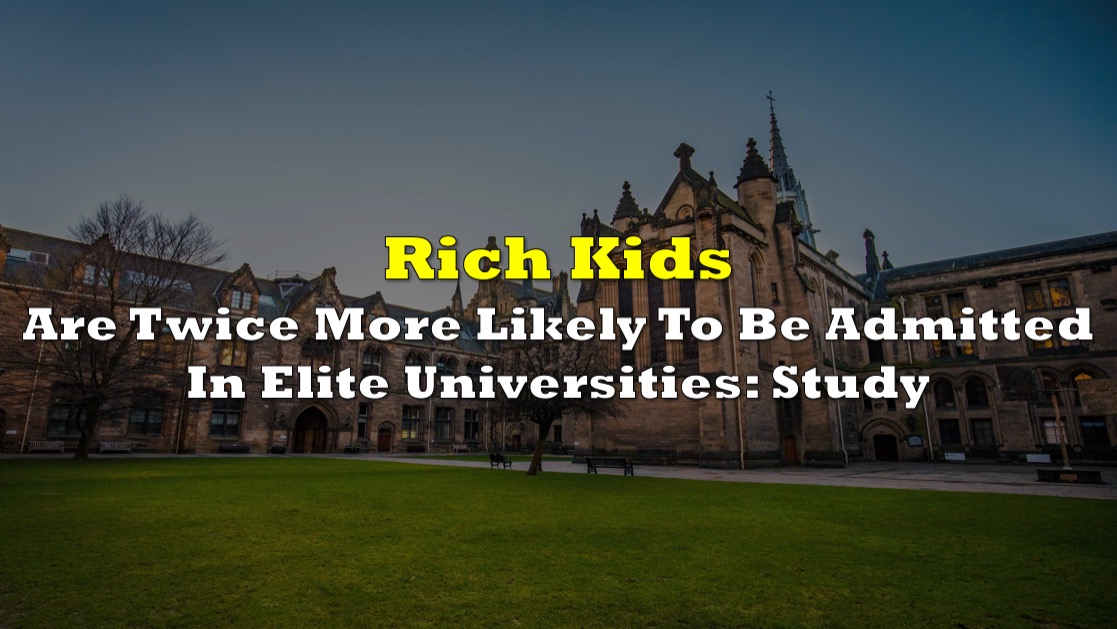A recent study conducted by Opportunity Insights, a research group comprised of Harvard researchers and policy analysts studying inequality, has shed light on the unequal admissions landscape of elite universities in the United States. According to the study, children hailing from the top 1% of financially well-off families are more than twice as likely to secure a spot at these prestigious institutions compared to their middle-class counterparts, even if they possess comparable SAT and ACT scores.

“Higher admission rates for students from high-income families can be attributed to three factors: preferences for children of alumni (legacies), higher non-academic ratings, and athletic recruitment,” the study highlighted.
The research delved into the admissions practices of eight Ivy League universities, as well as other prominent institutions such as Stanford, MIT, Duke, and the University of Chicago. Its primary focus was to determine if these institutions perpetuate privilege and to explore ways to diversify the country’s top earners by revamping their admissions policies.
To answer these questions, the researchers analyzed anonymous admissions data, cross-referencing it with income tax records and SAT/ACT test scores from the years 1999 to 2015 and 2001 to 2015, respectively.
One of the study’s noteworthy findings was that the advantage of being admitted into elite schools was not observed in flagship public colleges. The study noted that “attending an Ivy-Plus instead of a flagship public college triples students’ chances of obtaining jobs at prestigious firms and substantially increases their chances of earning in the top 1%.”

This discrepancy led the researchers to suggest that highly selective private colleges could potentially alter the composition of their student bodies by adopting admissions practices akin to those of their public counterparts.
“By changing their admissions policies, Ivy-Plus colleges could significantly diversify the socioeconomic backgrounds of America’s highest earners and leaders,” the study wrote.
The study attributed the admissions advantage for the financially privileged to several factors, including a preference for legacy admissions, the weight placed on nonacademic credentials, and athletic recruitment. Surprisingly, the researchers discovered that these factors did not significantly impact post-university outcomes. Instead, the most accurate predictors of a student’s success after school were found to be their SAT and ACT scores, as well as academic performance.
Defining the top 1% as those with an income exceeding $611,000, the researchers at Opportunity Insights argued that the disproportionate representation of elite school graduates in leadership positions could be mitigated by modifying admissions policies at these institutions. While acknowledging that these colleges educate only a small fraction of students overall and cannot solely change rates of social mobility, the study emphasized that Ivy-Plus colleges could still meaningfully diversify the socioeconomic origins of the country’s future leaders through strategic admissions reforms.
Information for this story was found via CNN and the sources mentioned. The author has no securities or affiliations related to the organizations discussed. Not a recommendation to buy or sell. Always do additional research and consult a professional before purchasing a security. The author holds no licenses.




